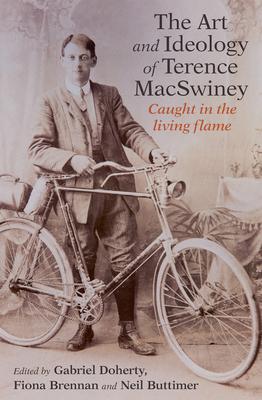Terence MacSwiney is most famous as the central figure in one of the great hunger strikes in world history, which culminated in his death in October 1920, aged 41, in Brixton prison, London, after a fast of 74 days. For many years prior to his demise, however, he had been an active participant in the intense cultural and political debates that characterised Irish life in the late nineteenth and early twentieth centuries. In these exchanges MacSwiney employed a variety of literary forms to express his support for the political separation of Ireland from Britain and the promotion of indigenous culture. These writings, regrettably, were overshadowed by the manner of his death, and for the most part have been unavailable to the public ever since. The volume seeks to re-awaken interest in this aspect of MacSwiney's contribution to Irish life by making these texts available in a single volume for the first time. They cover the span of his adult life, from 1900 onwards: firstly as a published poet; subsequently as a dramatist, and finally as a prose writer. While his work as a member of Dil ireann, Lord Mayor of Cork and Commandant of the Cork no 1 Brigade of the IRA, meant that he had much less time to devote to his writings in the last eighteen months of his life, the last texts included here date from shortly before the arrest and imprisonment that provoked his hunger strike. The collection encompasses both published and unpublished material, the latter only previously available in archives. Following a general introduction that outlines the principal stages of MacSwiney's life, each of the major categories of his literary output -- poetry, drama and prose -- are presented in turn and accompanied by introductions that analyse and contextualise the texts.

The Art and Ideology of Terence Macswiney: Caught in the Living Flame
Terence MacSwiney is most famous as the central figure in one of the great hunger strikes in world history, which culminated in his death in October 1920, aged 41, in Brixton prison, London, after a fast of 74 days. For many years prior to his demise, however, he had been an active participant in the intense cultural and political debates that characterised Irish life in the late nineteenth and early twentieth centuries. In these exchanges MacSwiney employed a variety of literary forms to express his support for the political separation of Ireland from Britain and the promotion of indigenous culture. These writings, regrettably, were overshadowed by the manner of his death, and for the most part have been unavailable to the public ever since. The volume seeks to re-awaken interest in this aspect of MacSwiney's contribution to Irish life by making these texts available in a single volume for the first time. They cover the span of his adult life, from 1900 onwards: firstly as a published poet; subsequently as a dramatist, and finally as a prose writer. While his work as a member of Dil ireann, Lord Mayor of Cork and Commandant of the Cork no 1 Brigade of the IRA, meant that he had much less time to devote to his writings in the last eighteen months of his life, the last texts included here date from shortly before the arrest and imprisonment that provoked his hunger strike. The collection encompasses both published and unpublished material, the latter only previously available in archives. Following a general introduction that outlines the principal stages of MacSwiney's life, each of the major categories of his literary output -- poetry, drama and prose -- are presented in turn and accompanied by introductions that analyse and contextualise the texts.